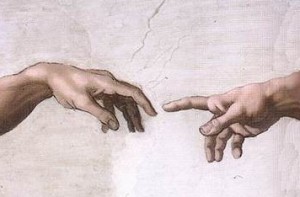 Planned Parenthood President Cecile Richards recently tweeted out a short video featuring her suggestions of what women really need for Valentine’s Day. Among a litany that included “well woman visits,” “cancer screenings,” and “birth control,” was “safe & legal abortion.” All of this, we’re mockingly informed, is “really radical stuff” which, of course, is a sarcastic quip meant to stigmatize those who don’t embrace the entirety of Planned Parenthood’s ideology, including its disposable man ethic.
Planned Parenthood President Cecile Richards recently tweeted out a short video featuring her suggestions of what women really need for Valentine’s Day. Among a litany that included “well woman visits,” “cancer screenings,” and “birth control,” was “safe & legal abortion.” All of this, we’re mockingly informed, is “really radical stuff” which, of course, is a sarcastic quip meant to stigmatize those who don’t embrace the entirety of Planned Parenthood’s ideology, including its disposable man ethic.
Richards’ tweet comes on the heels of a sacrilegious satire from comedienne and abortion rights advocate Sarah Silverman. To commemorate the anniversary of Roe v. Wade, Silverman produced a short skit in which she and Jesus discuss the question of when life begins. Lamenting that he is “bummed” that people misuse his teachings to advocate oppression and intolerance, Silverman’s fictional Jesus tells her that life begins at 40 and that fertilized eggs are not people. The skit was produced as part of the run up to a women’s pride event, “V to Shining V,” hosted by a group called Lady Parts Justice. Meanwhile, across the sea, our Belgian cousins just voted in favor of a law that authorizes euthanasia for children with disabilities, so long as the child is deemed to be of sound mind and receives the permission of his parents.
Signs of social depravity? You bet. It’s enough to make one wonder whether human society has fallen so far down the rabbit hole that it is past the point of redemption.
This downward spiral is a consequence of Western culture’s increasing rejection of faith in a divine Creator. Given the average American’s dismal grasp of American history, it might come as a shock to some to learn that our Founding Fathers derived their views on human rights and dignity from the Judeo-Christian ethical tradition. Human dignity and human rights, as articulated by the authors of our Declaration of Independence, flow from the fact that human beings are deemed to be creatures made in God’s image. Because of that exalted status, they are vested with inalienable rights – the first and foremost of which is the right to life. Governments exist, according to the Declaration, to secure those rights.
The sanctity of the right to life is eroded any time society makes that right contingent upon someone else’s discretion. How far short of perfection or desirability can one fall and still be included in the human family? Does one have to be as smart as a Supreme Court judge, as beautiful as Miss America, or able to jump as high as Michael Jordan before they are accorded membership into the club? Must one’s conception be perfectly planned for and orchestrated in order to merit the benefit of continued gestation and live birth? And what happens to one’s membership status if they become substantially diminished in their capacities, perhaps because of age or illness or injury? Does their membership then become revocable?
Increasingly, we’re seeing that the answer to the last question is “yes.” The societal ethos that allows for the destruction of a less than perfect or unwanted child also allows for the destruction of a less than perfect adult. (Terri Schiavo was Exhibit A to that proposition.) With the aging of the baby boomers, the pressures that militate toward the elimination of defective adults will only get worse. As the number of elderly increases in our society, the strain on the Medicare, Medicaid and Social Security systems will also increase. The ratio between workers and retirees has fallen dramatically in the last 50 years, and the Obamacare debacle is only adding fuel to this already raging fire.
Sadly, the sanctity of life ethic that dominated our collective thinking for several hundred years in the United States, and that resulted in the protection of the weakest among us, is rapidly being supplanted by a “disposable man” ethic that calculates the net worth of a person utilizing quality of life calculus, cost/benefit ratios, and an assessment of whether one is “wanted” or not. The only way for society to preserve a sanctity of life ethic that respects and protects the life and dignity of each human being is by preserving the concept of the imago dei – the belief that human beings are made in God’s image and therefore are of inherent and inestimable worth, value, and dignity. Neither the right to life nor the right to be treated with dignity should be qualified by age, race, sex, economic status, stage of development, intelligence or functional capacity. Every person – black or white, rich or poor, whole or handicapped, born or unborn – should be entitled to life and basic human dignity.
We’ve abandoned the faith-based notion of the imago dei in America and throughout much of the Western world. As a result, the most vulnerable among us are paying the price with their lives. One can only pray that it’s not too late to turn the tide and restore the role of faith to its rightful place in the western moral, ethical, and legal fabric. Lives depend on our doing just that.



